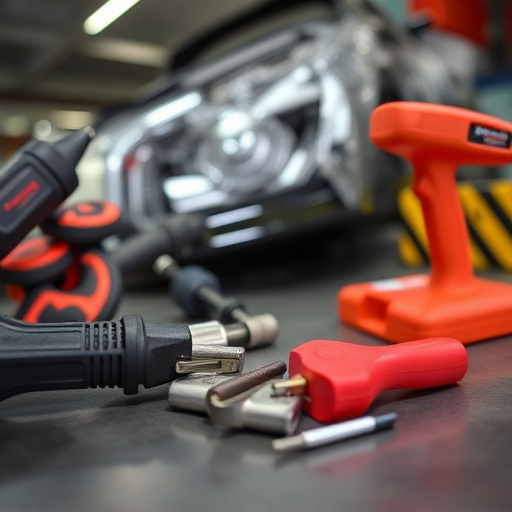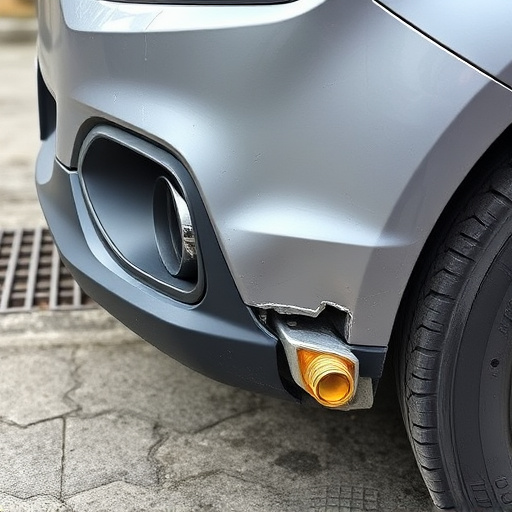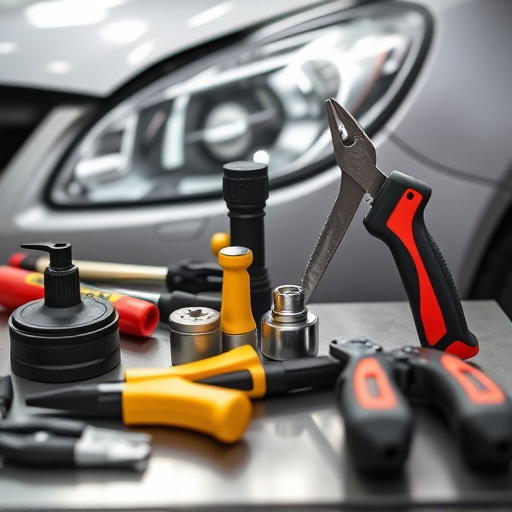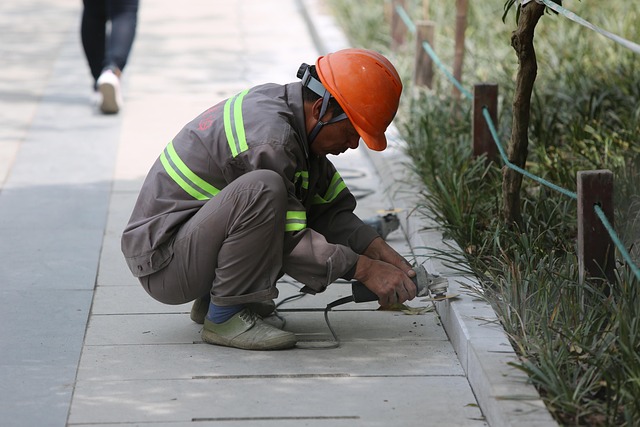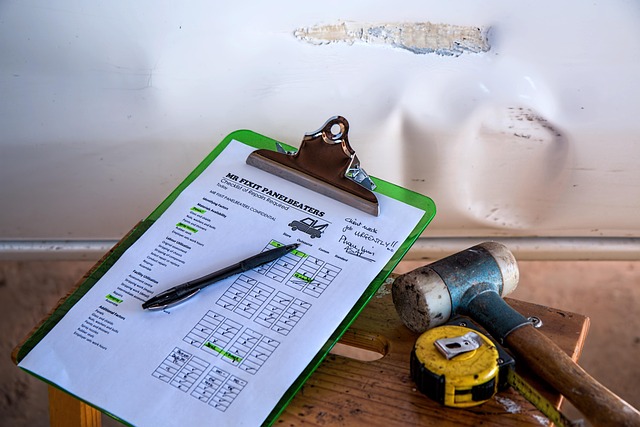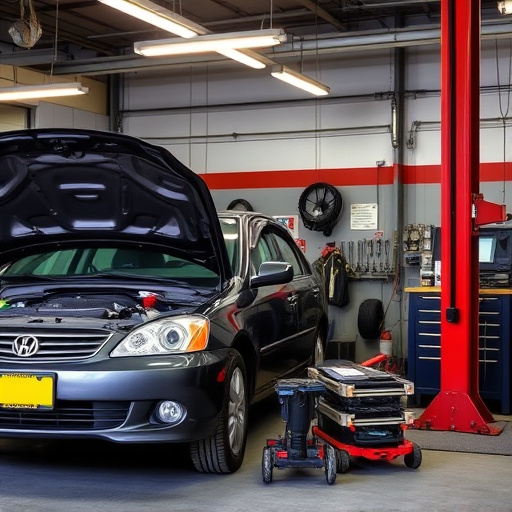Resistance Spot Welding (RSW) is a precise, efficient process used globally for automotive manufacturing & collision repair, creating strong bonds on thin materials. It involves positioning workpieces between electrodes and applying electric current to generate localized heat. RSW is versatile for steel, aluminum, and alloys, offering consistent quality, rapid cooling times, minimal waste, and cost-effectiveness, making it a preferred method in auto body shops and industrial applications alike.
Resistance Spot Welding (RSW) is a powerful technique transforming manufacturing processes across industries. This article delves into the intricacies of RSW, providing a comprehensive guide for both beginners and experienced professionals. From understanding the fundamental principles to exploring advanced applications, we uncover why this method is a game-changer. Learn about the essential equipment, materials, and benefits that make RSW a versatile and efficient welding solution.
- Understanding Resistance Spot Welding: The Basics
- Equipment and Materials Required for Effective RSW
- Applications and Benefits of Resistance Spot Welding
Understanding Resistance Spot Welding: The Basics

Resistance spot welding is a highly precise and efficient process used extensively in various industries, including automotive manufacturing and collision repair shops. It involves applying a concentrated electric current through a pair of electrodes to fuse two metal pieces together. This method is particularly favored for its ability to create strong, durable bonds on thin materials, making it an indispensable technique for auto frame repairs.
The process begins by positioning the workpiece between the electrodes, followed by the application of pressure and an electric current. The heat generated by this collision causes a localized melt, resulting in a solid weld upon cooling. Resistance spot welding is renowned for its versatility, as it can be utilized on diverse materials like steel, aluminum, and certain alloys, making it a go-to solution in many auto repair shops.
Equipment and Materials Required for Effective RSW

For effective resistance spot welding (RSW), the right equipment and materials are essential. This process requires specialized tools such as a resistance spot welder, which consists of a power source, control unit, and welding gun. The welder controls the current and voltage to precisely melt metal, creating strong bonds. Along with the welder, you’ll need electrodes or tips tailored for the specific material being welded, as well as various consumables like no-clean flux and welding wire.
In an auto body shop or during car restoration projects, ensuring you have the correct materials is vital. For instance, when dealing with car scratch repair, RSW offers a precise and durable solution. The right equipment and materials allow for consistent and high-quality welds, making it a preferred method in industries like automotive and beyond.
Applications and Benefits of Resistance Spot Welding

Resistance Spot Welding (RSW) has a multitude of applications across various industries. It is particularly prized in the automotive sector for tasks like collision repair and auto body shop operations, where precision and efficiency are paramount. This technique allows for strong, permanent bonds between metals, making it ideal for joining panels, frames, and components in both light and heavy vehicles.
Beyond auto glass repair and other automotive applications, RSW finds use in manufacturing industries that require robust welding of metal parts. Its benefits include high productivity rates due to quick cooling times, minimal heat-affected zones, and reduced material waste. These advantages make it a preferred choice for many professionals in the field, contributing to cost savings and improved overall quality in final products.
Resistance Spot Welding (RSW) is a versatile and efficient technique that offers numerous benefits across various industries. By understanding its basics, selecting the right equipment and materials, and leveraging its applications, manufacturers can maximize the advantages of RSW, including strong bonds, reduced material waste, and faster production times. This powerful method continues to be a game-changer in modern manufacturing processes.




